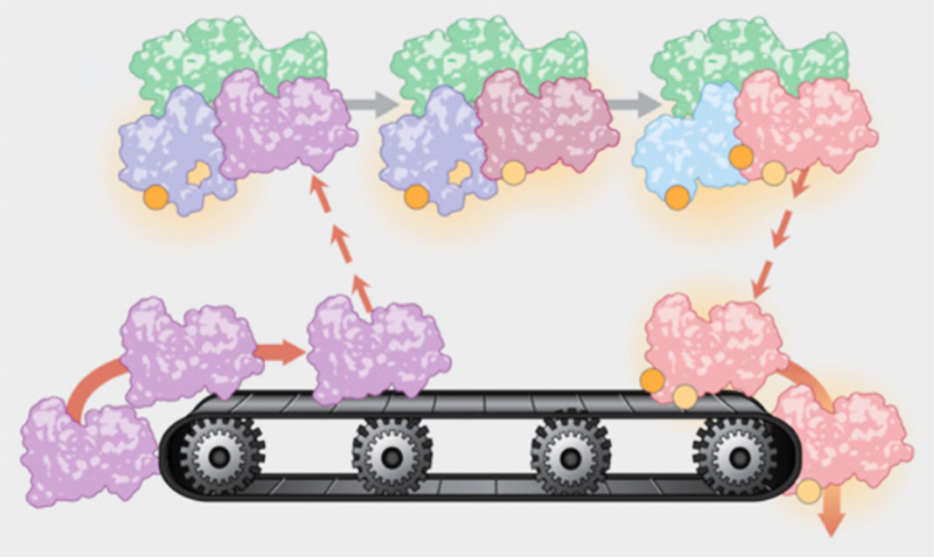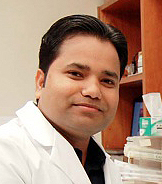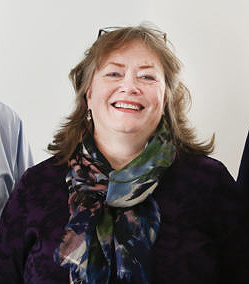Stephen Doster
-

Lindsley receives ASPET award honoring drug discovery research
Jan. 10, 2019, 11:35 AM by Bill Snyder Craig Lindsley, PhD Craig Lindsley, PhD, a leader of Vanderbilt University School of Medicine’s groundbreaking drug discovery program, is being honored by the American Society for Pharmacology and Experimental Therapeutics (ASPET) for his transformative approaches to identifying potential new drugs. Lindsley, director… Read MoreJan. 16, 2019
-

Amplifying the Signal with a Scaffold
Scaffolding proteins serve as sites of binding and organization for the multiple components involved in many signaling pathways. Scaffolding promotes key protein-protein interactions and can substantially amplify a signal; however, if proteins are bound too tightly to a scaffold, signal propagation may actually be hindered. The precise mechanisms that regulate… Read MoreJan. 14, 2019
-

Bile acids mediate metabolic benefits of weight-loss surgery
by Leigh MacMillan A team of Vanderbilt investigators has pinpointed the role of bile acids and a specific signaling pathway in the positive metabolic effects of weight-loss surgery. The findings, reported in the journal Gastroenterology, also suggest that the intestinal microbiome participates in post-surgery improvements. The results… Read MoreJan. 14, 2019
-

-

Merrikh Lab working to defeat drug-resistant superbugs
by Heidi Hall Dec. 20, 2018, 2:56 PM A new Vanderbilt University biochemistry professor is working to defeat drug-resistant superbugs by blocking a molecule they need to mutate rapidly. In 2015, Houra Merrikh discovered that a bacterial protein called Mfd quickens the… Read MoreDec. 21, 2018
-

Casey honored with Chancellor’s Heart and Soul awards
by Ann Marie Deer Owens Dec. 21, 2018, 6:51 AM Maureen Casey, chief administrative officer for the Mass Spectrometry Research Center, is the latest recipients of the Chancellor’s Heart and Soul Staff Appreciation Award. Casey has worked for more than… Read MoreDec. 21, 2018
-

Harris appointed co-chair of ASN’s Kidney Health Initiative
Dec. 20, 2018, 10:16 AM by Kelsey Herbers Raymond Harris, MD, Ann and Roscoe R. Robinson Professor of Nephrology and director of the Vanderbilt Center for Kidney Disease, has been appointed co-chair of the American Society of Nephrology’s (ASN) Kidney Health Initiative (KHI). Raymond Harris, MD The… Read MoreDec. 20, 2018
-

The Fine Points of Exocyst Dynamics
Exocytic vesicles fuse with the plasma membrane (PM) through the action of SNARE proteins, which in turn, are delivered to the vesicles by multisubunit protein tethering complexes. One such complex is the exocyst, comprising two tetrameric subcomplexes, SC1 (composed of SEC3, SEC5, SEC6, and SEC8) and SC2 (composed of SEC10,… Read MoreDec. 17, 2018
-

Caleigh Azumaya named 2019 Anne Karpay Award in Structural Biology recipient
Congratulations to Caleigh Azumaya, of the Nakagawa Lab, for being selected the 2019 recipient of The Anne Karpay Award in Structural Biology. Caleigh was chosen for her ability to perform outstanding research and for her collegiality and willingness to engage those around her. Caleigh will present the… Read MoreDec. 17, 2018
-

Keys to Sarcomere Assembly
Figure reproduced under the Creative Commons Attribution (CC-BY) license from A. M. Fenix, et al. (2018) eLife, published December 12, DOI: 10.7554/eLife.42144. The sarcomere is a repeating unit of interdigitating actin and myosin filaments that serves as the building blocks of the myofibrils in striated muscle cells. Sarcomeres are demarcated… Read MoreDec. 17, 2018